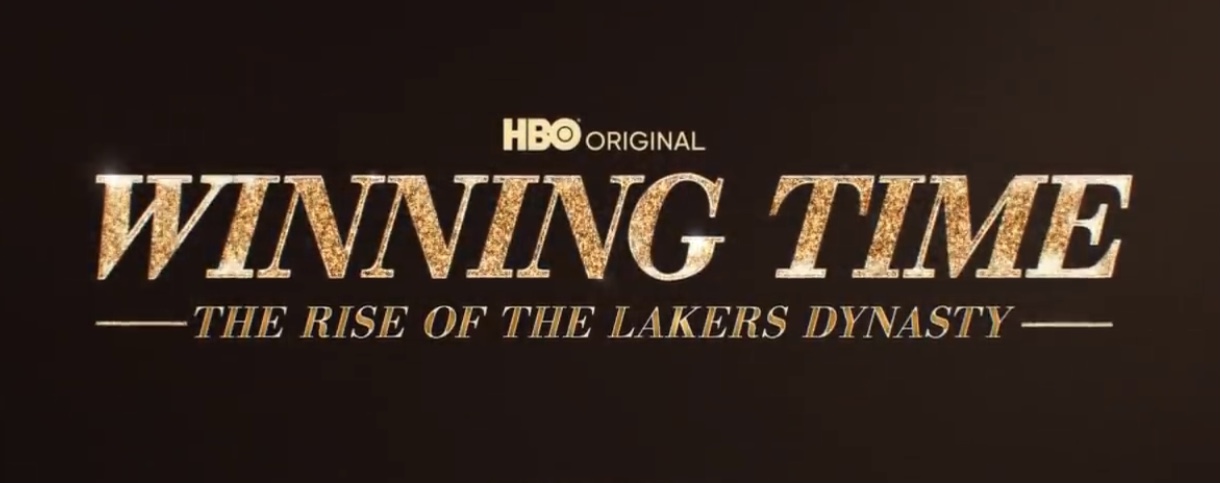In 1979,
the National Basketball Association’s revenue and attendance are dwindling. Dr.
Jerry Buss (John C. Reilly), a chemist turned real estate tycoon, overextends
himself to buy the once-proud Los Angeles Lakers with an eye on returning the
team to its former glory. To do so, he plans on drafting Earvin “Magic” Johnson
(Quincy Isaiah), a flashy 6’9” point guard coming off a college championship
season, despite the presence of incumbent guard Norm Nixon (played by Nixon’s
son Devaughn) and the reservations of the team’s coach, franchise legend Jerry
West (Jason Clarke). Buss, never one to accept limits, has his bookkeeper
mother Jessie (Sally Field) use a few accounting tricks to stay ahead of
creditors and taps overlooked and underappreciated Claire Rothman (Gabby
Hoffman) to increase stadium revenue. But will Buss’s pluck and Johnson’s
talent be enough to overcome trouble on and off the court?
Adapted by
Max Borenstein and Adam McKay from Jeff Pearlman’s nonfiction book Showtime,
Winning Time (named such since it aired on HBO) is both wildly
entertaining and wildly inaccurate. Take its abuse of dramatic license and
occasionally uneven pacing out of the equation, and it’s a stylishly watchable
production full of both humor and heart.
Admittedly,
that style isn’t for everyone. McKay, who directed the pilot episode, took the
fourth wall breaks and asides to the audience that he used in the Big Short
and made them a staple of Dr. Buss’s character. However, this bit of comedic
gimmickry does not wipe out the show’s dramatic stakes, which often extend far
beyond a mere game. Characters battle addictions, self-doubt, and even death
itself. It helps that the show’s production values are high, offering a period
music/fashion/palette combination that seems Scorsesian at times.
Winning
Time was made without the participation of the actual Lakers, several of whom
were miffed at their portrayals. In some cases, it isn’t hard to see why. Several
characters are exaggerated to cartoonish proportions. Those that are written as
three-dimensional, on the other hand, are generally well-acted. Reilly is
magnetic as Buss, playing him as half visionary, half sleazy hustler. Field adds
a touch of vulnerability to a sharp-tongued granny role. Hadley Robinson as
young Jeanie Buss (currently, the Lakers owner) functions as the family’s moral
center. Isaiah captures both Johnson’s almost-perpetual smile as well as the
drive and the doubts that lay beyond it. Solomon Hughes, a college basketball
player turned academic in his first acting role, faced an unenviable task in portraying
Lakers captain Kareem Abdul-Jabbar. He comes across as one-dimensionally aloof
in the early episodes, but Hughes is adept at capturing his leadership,
intelligence, and competitive fire later on. Perhaps the best supporting turn,
however, belongs to Wood Harris as bruising veteran forward Spencer Haywood.
Harris, who was pushing thirty when he played a high schooler in Remember the
Titans, is again far too old for the part, but he does such a good job of
capturing the addiction-addled Haywood’s inner demons that you hardly notice.
That said,
there are plenty of things in Winning Time that you do notice that you
wish you hadn’t. West is introduced as drunk, angry, profane, and full of
self-loathing over his championship losses. While he eventually mellows out as
he transitions from the bench to the front office, it’s still a far cry from
the more cordial mentor figure that many of his real-life colleagues describe. The
Nixon-Johnson rivalry is transparently inflated only for them to have an
equally transparent “come together and win” moment later on. The same cheap
dramatization goes for the team’s coaching carousel. In short, West recruited
unheralded Portland Trailblazers assistant Jack McKinney (Tracy Letts) as his
replacement, and McKinney in turn recruits his friend, Shakespeare-quoting Paul
Westhead (Jason Segel) from the college ranks. McKinney installs an up-tempo
offense, the team takes off, McKinney gets hurt, a panicked Westhead tabs floundering
color commentator/former Laker Pat Riley (Adrien Brody) as his assistant, McKinney
recovers, and suddenly, there’s a bitter rivalry for the coaching job. The
contention may make for a good television conflict, but they also serve to make
McKinney look spiteful and Westhead weak. At least Brody captures Riley’s
famous intensity.
Winning
Time is primed for
a second season, which makes sense as there are plenty more stories left to
tell. What follows has the potential to be as entertaining as what has aired so
far, but a little bit of nuance and grounding can go a long way toward winning
over skeptics.











